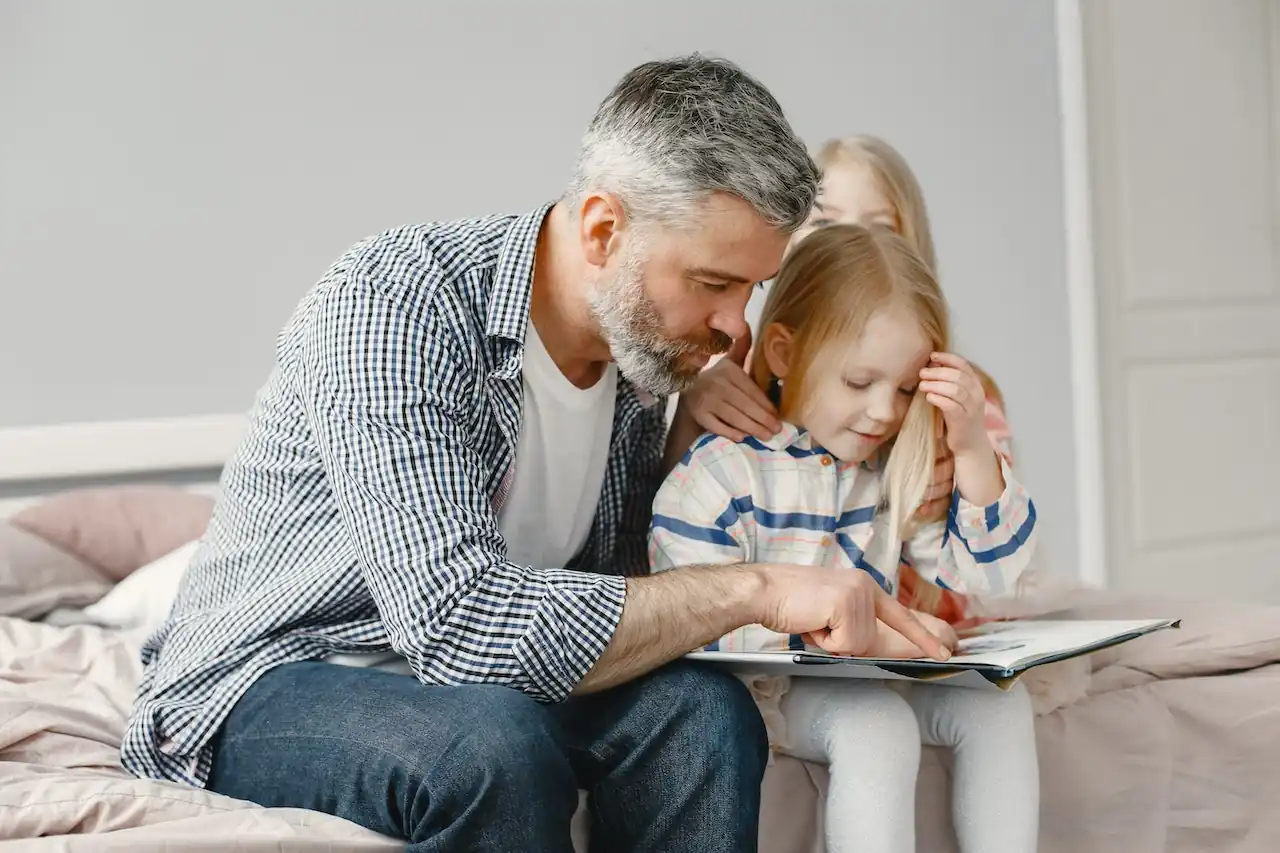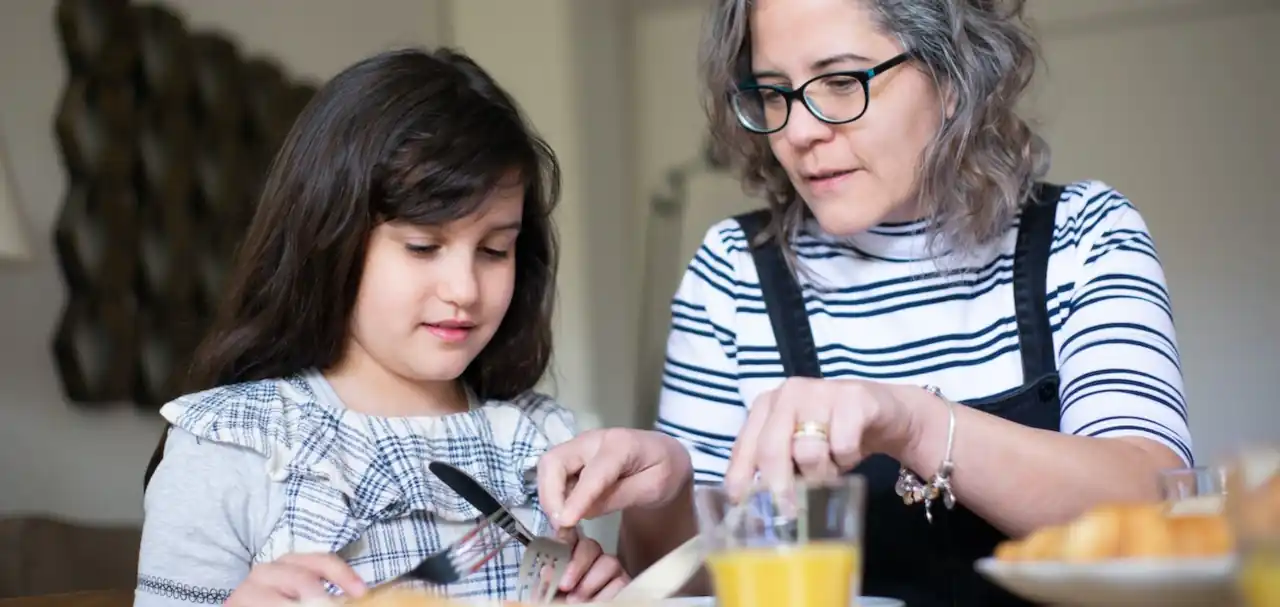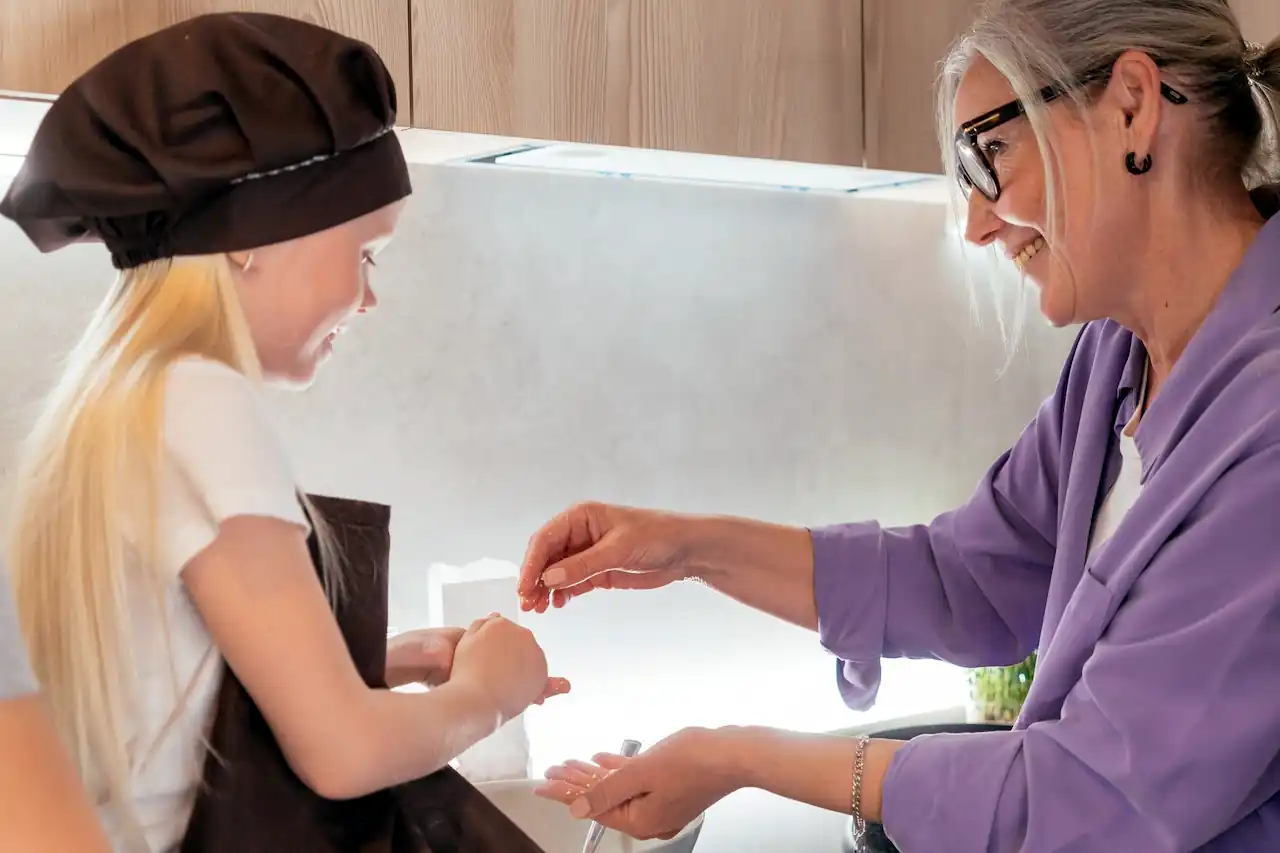Transforming Communities: The Empowering Impact of Intergenerational Programs
Intergenerational programs, which bring together people of different ages to learn, play, and share experiences, have been gaining popularity in recent years. These types of programs can have many benefits for both seniors and children, as well as the broader community.

Introduction to Intergenerational Programs: Exploring Benefits for Both Older and Younger Participants
Welcome to our blog on intergenerational programs, where we explore the benefits of bringing together people of different age groups to promote learning, growth, and social connection. In this blog, we have discussed the concept of intergenerational programs, including the benefits that both older and younger participants can gain from participating in such programs.
In our previous blog posts, we have discussed other important topics related to ageing, such as the importance of mobility and physical activity for the elderly and achieving retirement readiness. These topics are all interconnected, as they each contribute to a fulfilling and healthy life in older age.
We recognize that ageing can be a complex and multifaceted process, and our goal with this blog is to provide informative and educational content. We appreciate your continued support and interest in our blog and hope that the information we provide can be of help to you or someone you know.
Now, let’s dive deeper into the details of intergenerational programs and how they can support positive outcomes for both older and younger generations.

Building More Age-Inclusive Communities through Intergenerational Programs
Intergenerational programs play a crucial role in promoting age-inclusivity in communities. They foster social connections and create opportunities for older and younger generations to learn from each other, share experiences, and work towards common goals. By bringing together individuals of different ages and backgrounds, intergenerational programs break down age-related stereotypes and promote positive attitudes towards ageing.
Intergenerational programs also have a significant impact on the well-being of older adults. They provide a sense of purpose and social support, which can help prevent loneliness and social isolation, both of which are major health risks for older adults. Additionally, intergenerational programs offer opportunities for older adults to stay active, engaged, and connected with their communities, which can lead to a higher quality of life.
By promoting social connection and well-being across generations, intergenerational programs are an important step towards building more age-inclusive communities. They help to break down the barriers between age groups and foster greater understanding, respect, and appreciation for people of all ages.
Benefits of Intergenerational Programs
Reducing Social Isolation and Loneliness: Seniors are at a higher risk for social isolation and loneliness, which can have negative impacts on their health and well-being. Intergenerational programs can provide an opportunity for seniors to connect with younger generations and feel more engaged with the community.
Promoting Empathy and Reducing Ageism: Children who participate in intergenerational programs can develop greater empathy and understanding towards seniors, while also learning to challenge ageist stereotypes. This can have a positive impact on their attitudes towards ageing and contribute to building a more age-inclusive society.
Enhancing Cognitive Function: Participating in intergenerational programs can help seniors stay mentally active and engaged, which can help maintain cognitive function and potentially reduce the risk of cognitive decline.
Promoting Physical Activity: Intergenerational programs can provide an opportunity for seniors to participate in physical activities with children, such as gardening or outdoor games. This can help promote physical activity and reduce the risk of age-related health problems.

Examples of Intergenerational Programs
Reading Buddies: This program pairs seniors with young children to read books together. It promotes literacy skills for the children while providing an opportunity for seniors to share their love of reading and storytelling.
Adopt-A-Grandparent: This program matches seniors with individual children, who then develop a special bond through regular visits, shared activities, and special events.
Music and Memory: This program brings together seniors with cognitive impairments and preschoolers to listen to and engage with music, which can promote memory and cognitive function.
Mentoring Programs: Seniors can serve as mentors or tutors for children, helping with homework, offering advice, and serving as positive role models.
Intergenerational programs have the potential to create meaningful connections between seniors and children, while also benefiting the broader community.
Pairing Different Ages.
Intergenerational programs can be designed to bring together individuals from a wide range of age groups, but the specific age ranges that work best can depend on the program goals and the preferences of the participants.
In general, intergenerational programs tend to focus on pairing older adults with children or youth, often in the context of educational or social activities. The age ranges for these programs can vary, but some common examples include:
Preschoolers and older adults: This age group is often featured in intergenerational programs such as reading buddies or adopt-a-grandparent programs, where older adults can serve as mentors or tutors for young children. The older adults in these programs may also benefit from the energy and enthusiasm of the young children, as well as the opportunity to share their life experiences.
School-age children and older adults: Programs that pair school-age children with older adults can take many forms, such as mentoring or tutoring programs, intergenerational sports teams, or music or art programs. In these programs, older adults may act as role models or provide support and guidance to the children, while also learning new skills or engaging in activities that they enjoy.
Young adults and older adults: Intergenerational programs that pair young adults with older adults can be especially effective in promoting social connections and reducing ageism. For example, some programs focus on bringing together college students and older adults, such as through shared housing arrangements or volunteer opportunities. In these programs, the younger participants may benefit from the wisdom and life experiences of the older adults, while the older adults may benefit from the energy and fresh perspectives of the younger participants.
The upper age limit for intergenerational programs can vary as well, but in general, the focus tends to be on pairing older adults with younger generations. However, there are some programs that aim to bring together individuals from a wider range of ages, such as community gardening programs or intergenerational choirs. In these programs, the focus may be less on mentorship or education and more on building social connections and fostering a sense of community.
Intergenerational Program Activities.
Preschoolers and Older Adults:
Reading Buddies: Older adults can help preschoolers improve their reading skills by reading books with them and encouraging their comprehension skills.
Storytelling: Seniors can share their life stories and experiences with preschoolers, helping them learn about different cultures and life experiences.
Art Projects: Seniors can help preschoolers with simple art projects, such as painting or drawing, fostering creativity and building social connections.
Nature Walks: Older adults can take preschoolers on nature walks, exploring the natural world and fostering a love for the environment.
School-Age Children and Older Adults:
Intergenerational Sports: Both school-age children and older adults can participate in group sports activities such as volleyball, soccer, or basketball, promoting physical activity and teamwork.
Cooking and Baking: Seniors can teach children how to cook or bake, sharing recipes and culinary traditions from their own culture.
Mentoring Programs: Older adults can serve as mentors for school-age children, providing academic or emotional support and guidance.
Music and Theater: Seniors can participate in music or theatre programs with school-age children, fostering creativity and promoting self-expression.
Young Adults and Older Adults:
Volunteer Opportunities: Both young and older adults can volunteer together at local community organizations or charitable events, promoting social connections and community involvement.
Technology Training: Older adults can learn technology skills from young adults, promoting digital literacy and reducing social isolation.
Intergenerational Housing: Young adults and seniors can live together in shared housing arrangements, providing mutual support and companionship.
Cultural Exchange Programs: Young adults can learn about other cultures and traditions from older adults, promoting cross-generational understanding and reducing ageism.

Goals of Intergenerational Programs – Fostering Social Connections and Mutual Support
The goals of these programs can vary depending on the specific program and the needs of the participants, but some common goals include:
Reducing Ageism: Intergenerational programs can help reduce ageism by promoting positive interactions and understanding between different generations.
Promoting Social Connections: Many older adults experience social isolation, which can have negative effects on their physical and mental health. Intergenerational programs can provide opportunities for older adults to connect with younger generations and build new relationships.
Fostering Learning and Growth: Younger participants can learn from the experiences and wisdom of older adults, while older adults can benefit from the energy and fresh perspectives of younger participants.
Enhancing Mental and Physical Health: Participation in intergenerational programs has been linked to improved mental and physical health outcomes for both older adults and younger participants.
Encouraging Community Involvement: Intergenerational programs can provide opportunities for individuals from different generations to come together and work towards common goals, fostering a sense of community and social responsibility.
Intergenerational program benefits youngsters.
- Younger participants learn from the life experience and knowledge of older adults
- Building positive relationships with older adults promotes appreciation for their contributions and values
- Interacting with older adults develops empathy and compassion for people of all ages
- Interacting with older adults reduces ageism and stereotypes
- Working with older adults can develop mentoring and leadership skills for younger participants
Intergenerational programs benefit the elderly.
- Interacting with younger generations reduces social isolation and loneliness for older adults
- Participating in intergenerational programs gives older adults a sense of purpose and contribution
- Interacting with younger generations helps to reduce ageism
- Learning from younger generations can provide opportunities for growth and new skills
- Intergenerational programs enhance cognitive and physical health for older adults.
Promote understanding, mutual support, and social connections between different age groups, while also providing opportunities for learning and growth.

The difficulties of intergeneration programs and how to overcome them?
While intergenerational programs can have numerous benefits, there are also potential difficulties to consider. Here are a few examples, along with some strategies for overcoming them:
Stereotyping: One potential difficulty of intergenerational programs is the risk of stereotyping, which can occur when individuals make assumptions about others based on their age. To overcome this, it is important to create an inclusive and respectful environment where all participants are treated as individuals, rather than being defined by their age.
Differing Interests: Another challenge in intergenerational programs can be different interests and expectations among participants. To overcome this, it is important to incorporate a variety of activities and opportunities for engagement, while also allowing for flexibility and individual choice.
Communication Barriers: Communication barriers can also arise between different age groups, particularly when it comes to differences in language and communication styles. To overcome this, it is important to establish clear communication guidelines and encourage open dialogue among participants.
Health and Safety Concerns: Finally, intergenerational programs may present health and safety concerns, particularly when working with older adults who may have mobility or other health issues. To overcome this, it is important to take appropriate precautions and ensure that activities are accessible and safe for all participants.
By acknowledging and addressing these potential difficulties, intergenerational programs can become even more effective in promoting positive outcomes for all participants. With the right strategies and approaches, intergenerational programs can help bridge generational gaps and build connections that benefit everyone involved.
Tips and best practices for implementing intergenerational programs.
Implementing intergenerational programs can be a rewarding and effective way to promote social connections and enhance the well-being of people of all ages. Here are some tips and best practices to keep in mind when designing and implementing intergenerational programs:
Identify potential program partners: Look for organizations or individuals who are interested in intergenerational programs and who share your goals. Consider partnering with schools, community centres, nursing homes, or other organizations that serve seniors or children.
Design programs that meet the needs of both seniors and children: Consider the interests and abilities of all participants when designing intergenerational programs. Make sure the program is accessible, safe, and enjoyable for everyone involved.
Provide training and support: Ensure that all staff and volunteers working with intergenerational programs have the appropriate training and support they need to work effectively with people of all ages.
Measure program outcomes: Develop a clear set of goals and objectives for your intergenerational program, and use measurable outcomes to track your progress. This will help you to evaluate the effectiveness of the program and make improvements as needed.
Foster positive attitudes towards ageing: Use intergenerational programs as an opportunity to challenge negative stereotypes and promote positive attitudes towards ageing. Encourage participants to share their experiences and learn from each other.
By following these tips and best practices, you can help to create successful, sustainable intergenerational programs that benefit people of all ages. Remember, intergenerational programs have the potential to make a real difference in the lives of everyone involved and can help to build stronger, more connected communities.

Join the Movement and Build a More Age-Inclusive Community Today!
If you’re inspired by the potential of intergenerational programs to create more connected, inclusive communities, there are many ways to get involved. Consider participating in an intergenerational program in your own community, volunteering your time or resources to support an existing program, or even starting your own intergenerational initiative.
By taking action to promote social connection and understanding across generations, you can help to create a more age-inclusive community that benefits people of all ages. Whether you’re an older adult, a young person, or somewhere in between, you have the power to make a difference. Join the movement today and start building a brighter, more connected future for us all!
It’s Time To Go – The Conclusion
In conclusion, intergenerational programs have the potential to foster social connections, promote positive attitudes towards ageing, and enhance the well-being of people of all ages.
By breaking down the barriers between generations, these programs help to create more inclusive communities where people of all ages can learn from each other, support each other, and work towards common goals.
However, it is important to recognize the challenges and limitations of intergenerational programs and to work towards overcoming these barriers to ensure their success.
With continued support and innovation, intergenerational programs have the potential to play an increasingly important role in promoting social connection and well-being across generations.
Thank you for your continued support, we appreciate your likes, follows and retweets on Facebook, Twitter, Pinterest and LinkedIn! Make sure to share this post with friends and family.
You can make a difference
With your assistance, the volunteers at La Gratitude will be able to take better care of not only the residents at the old age home but also the greater Newcastle community. La Gratitude is constantly involved in outreach projects to help the elderly in need in and around Newcastle.
Your donations will be greatly beneficial in the provision of food and other basic necessities for the less fortunate elderly people that require assistance.
Donating is easy, click here to donate now.



